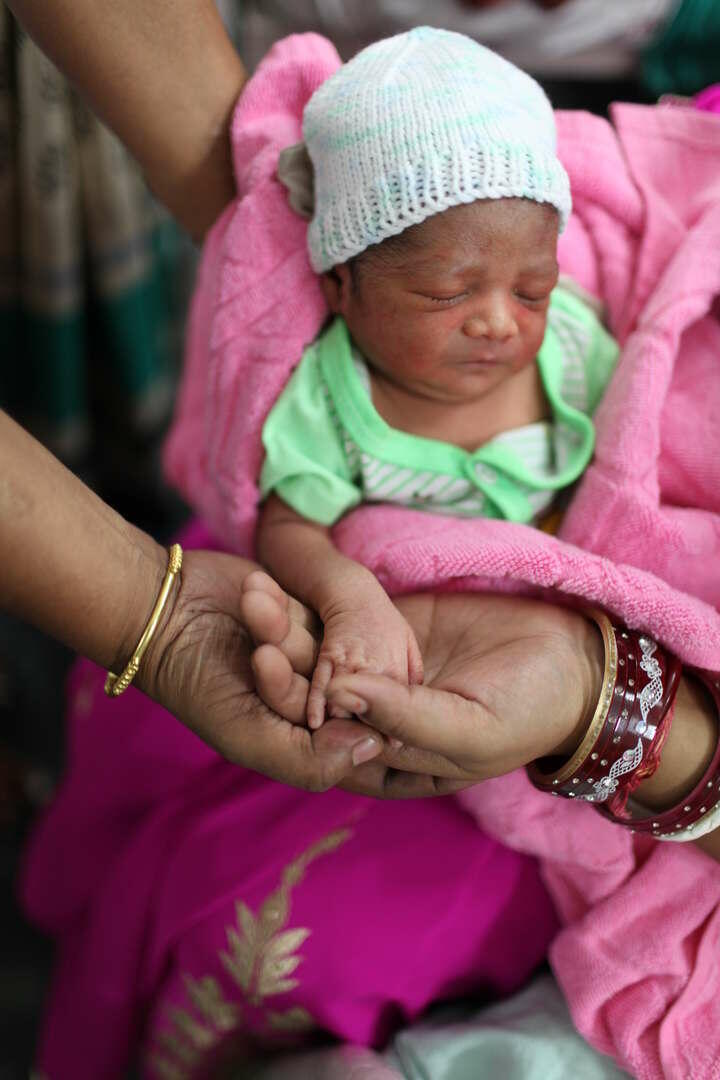
Worldwide, an estimated 15 million babies are born prematurely (before 37 completed weeks of pregnancy) every year. These babies face the highest risk of dying in the first month of life, and tragically, this is the case for 1 million babies each year. In addition, those who survive are more likely to face long-term health problems. Preventing premature births has proved difficult as there are multiple contributing factors, including maternal health and social status. Premature babies born in low- and middle-income countries are the most vulnerable, especially those whose mothers are poor. Good quality healthcare can improve the outcomes for these babies, but this is often inaccessible to many poor communities.
LSTM is working with Ministries of Health and international partners in a number of low- and middle-income countries (including India, Bangladesh, Zimbabwe, Ghana, Kenya and Chad) to support improvements in the quality of newborn care for premature babies. Our research programmes focus both on hospital settings and after babies are discharged into the community, as we aim to enhance both their survival and long-term health.
Recently published research from our work in India explored healthcare workers’ experiences of using a non-invasive breathing support device (CPAP) for sick hospitalised babies. We found that there were challenges to the implementation of CPAP due to inadequate infrastructure to support its safe use. This diminished its impact on saving newborn lives. The recommendations made from this research will support the scaling up of this crucial intervention to other low- and middle-income settings.
We are also working towards generating evidence for potentially sustainable interventions that would support the care of these preterm babies in the community after hospitalisation to ensure that mothers and caregivers in the community have adequate support to provide the extra care that these vulnerable babies need. These interventions include support with breast feeding and addressing the stigma that they face for having a small baby in communities, where historically many have not survived. We also hope that these interventions will support mothers/caregivers to access care in a timely manner.
This year, LSTM has also conducted a performance assessment of UNICEF-supported Special Care Newborn Units (SCANU) in Bangladesh. The findings will inform policy-makers and programme managers on key interventions that are needed within healthcare facilities and communities to ensure that newborns, particularly the vulnerable preterm babies, survive and thrive to reach their maximum potential. We have also conducted a participatory mixed-methods evaluation to determine how UNICEF has contributed to Special Newborn Care Units (SNCUs) in India. This evaluation will inform the improvement and refinement of programme strategies to achieve the goal and national targets outlined in the Indian Newborn Action Plan (INAP).
Dr Helen Nabwera, Senior Clinical Research Associate at LSTM:
“We are privileged to be collaborating with Ministries of Health and key partners to evaluate these important programmes and generate evidence on key interventions to improve the care of the preterm babies, in settings where this remains a challenge.”
The empowerment of women and girls worldwide remains a key strategy in addressing many maternal and child health challenges, including the care of preterm babies. The engagement of communities in the healthcare quality improvement strategies for preterm babies also has the potential to ensure their sustainability even in countries with limited resource.”